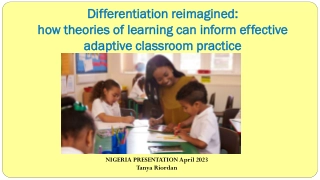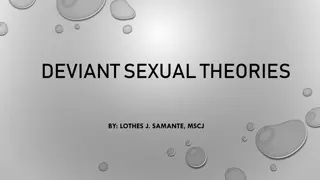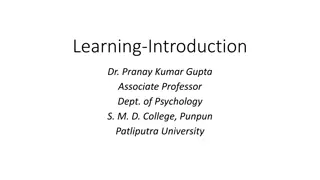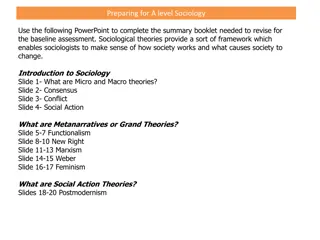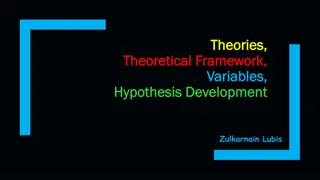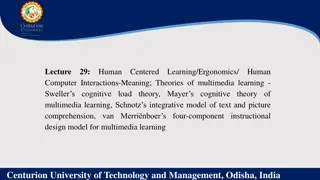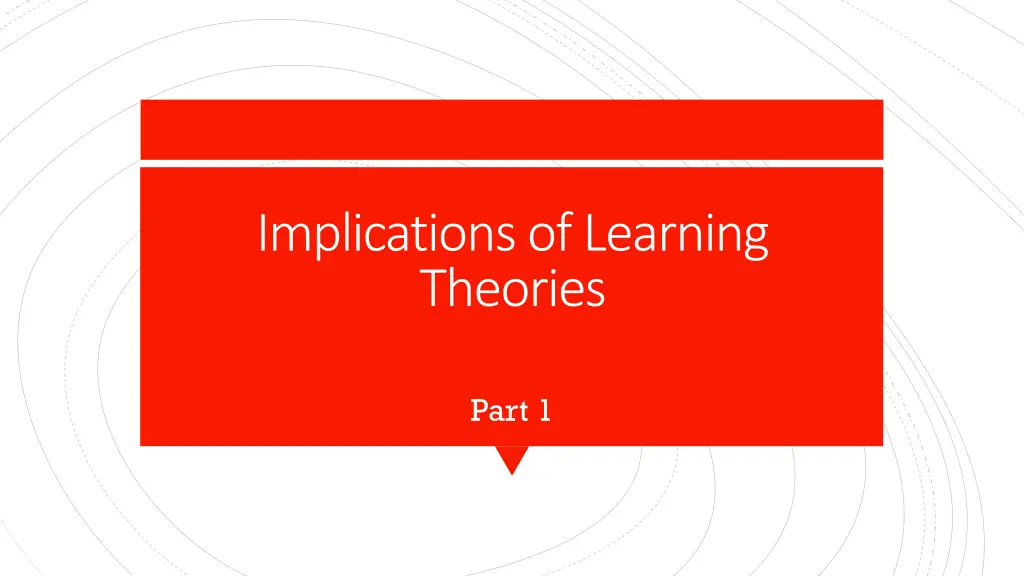
Learning Theories and Implications in Training Programs
Explore how reinforcement theory, social learning theory, and goal-setting theories shape training programs. Understand the impact of rewards, observations, self-efficacy, and goal orientation on learning. Enhance training effectiveness by applying these theories to encourage positive behaviors and goals achievement.
Download Presentation

Please find below an Image/Link to download the presentation.
The content on the website is provided AS IS for your information and personal use only. It may not be sold, licensed, or shared on other websites without obtaining consent from the author. If you encounter any issues during the download, it is possible that the publisher has removed the file from their server.
You are allowed to download the files provided on this website for personal or commercial use, subject to the condition that they are used lawfully. All files are the property of their respective owners.
The content on the website is provided AS IS for your information and personal use only. It may not be sold, licensed, or shared on other websites without obtaining consent from the author.
E N D
Presentation Transcript
Implications of Learning Theories Part 1
Reinforcement Theory This theory says that the consequences of behavior influence whether it is repeated. Trainers should identify trainees preferred rewards and link them to learning. To encourage desirable behaviors, use: Positive reinforcement to add a desirable outcome. Negative reinforcement to remove an undesirable outcome. To discourage undesirable behaviors, use: Positive punishment to add an undesirable outcome. Negative punishment to remove a desirable outcome.
Social Learning Theory This theory suggests we learn by: Observing others behaviors and paying attention to the most important aspects, Encoding and retaining the behavior in memory, Reproducing the behavior, and Receiving positive reinforcement for the behavior (motivational processes).
Social Learning Theory Trainees self-efficacy can be increased through: Verbal persuasion, offering words of encouragement. Logical verification, linking a new task to a task already mastered. Modeling, showing trainees how to successfully perform a task. Past accomplishment, letting trainees build a history of successful accomplishments.
Goal-Setting Theories This collection of theories suggest that our goals and intentions influence our behavior by: Directing energy and attention, Sustaining effort over time, and Motivating the development of strategies for goal attainment. Trainers should help trainees set SMART, challenging goals.
Goal-Setting Theories Goal orientation refers to the type of goals that trainees set in a learning situation and how they approach them. Learning Orientation Performance Orientation Trainees focus on increasing their capabilities. They view mistakes as useful for learning. Trainees focus on task performance and looking good in comparison to others. They view mistakes as foolish.
Goal-Setting Theories To promote a learning orientation, trainers should: Establish goals for experimentation, Provide constructive feedback when trainees make mistakes, Create a community of learning, and Deemphasize competition among trainees.

